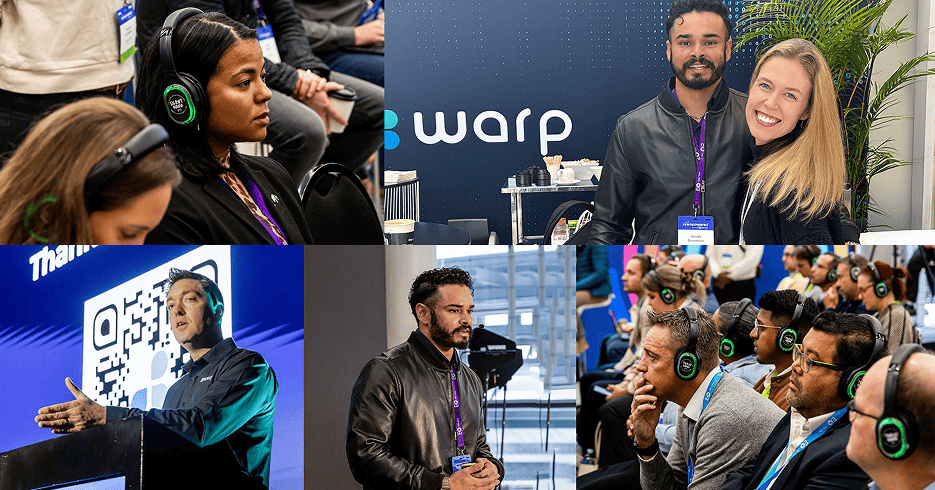Artificial Intelligence (AI) has become a driving force behind new technologies, and software engineering is riding this wave of innovation. The established practices that have guided software development for decades are adapting as these technologies advance.
AI engineering processes are changing how applications are built, tested, and deployed. Software engineers now create applications with greater complexity and intelligence than traditional methods allowed. OpenAI estimates that generative AI tools could impact 47% of all development tasks, accelerating the software development process. The machine learning model development lifecycle introduces new roles, methodologies, and architectural considerations that traditional frameworks never addressed.
At Warp Development, our senior engineering team sees AI as a powerful complement to human expertise in software development—not a replacement. With over 22 years of combined experience implementing enterprise solutions, we’ve observed firsthand how AI tools can enhance development workflows while recognising where senior engineering judgment remains irreplaceable.
AI-Driven Code Generation Changes Manual Programming Practices
The coding landscape has shifted as AI-powered tools automate tasks that developers once handled manually. Modern AI systems generate functioning code across multiple programming languages, automate routine development tasks, and assist with complex programming challenges.
GitHub Copilot and AI Pair Programming
GitHub Copilot launched in 2021 as a simple code completion tool. It has evolved into a sophisticated AI coding assistant that serves millions of individual users and tens of thousands of business customers, making it the most widely adopted AI developer tool globally. Developers using GitHub Copilot report up to 75% higher job satisfaction and up to 55% greater productivity without sacrificing code quality.
AI pair programming offers developers practical advantages:
- Delegate open issues to AI agents that write, test, and iterate code
- Receive real-time code suggestions based on context
- Focus more on problem-solving and less on boilerplate code
This approach allows you to concentrate on strategic thinking while AI handles routine coding tasks.
Code Quality and Developer Productivity Results
GitHub Copilot generates valid code with a 91.5% success rate. Quality varies significantly—out of 164 test problems, only 28.7% were solved correctly, 51.2% were partially correct, and 20.1% were incorrect.
Understanding AI Code Generation Constraints
AI code generators face significant limitations. They lack a deep understanding of business context and domain-specific requirements, operating on pattern recognition rather than genuine comprehension. Additionally, 25% of developers estimate that one in five AI-generated suggestions contains factual errors or misleading code.
AI tools struggle with edge cases or novel problems requiring creative solutions. Human engineers excel at interpreting ambiguous specifications, asking clarifying questions, and making informed assumptions—areas where AI typically accepts requirements at face value.
Organisations must recognise both the capabilities and limitations of these tools. Use them to enhance human creativity and expertise rather than replace it. This balanced approach ensures you gain productivity benefits while maintaining code quality and business alignment.
Beyond the AI Hype: A Balanced Approach
- While generative AI tools have captured headlines with impressive capabilities, our consultancy approach at Warp Development emphasises practical implementation:
- Output Validation: We implement rigorous review processes to verify AI-generated code meets quality standards
- Intellectual Property Protection: Our workflows safeguard your proprietary algorithms and sensitive data
- Strategic Integration: We identify specific development stages where AI delivers maximum ROI
- Human-AI Collaboration: We train your teams to effectively prompt, review, and refine AI outputs
As trusted advisors, we help clients navigate the AI landscape with clarity—implementing solutions that deliver measurable business value rather than chasing trends.
Where Senior Engineering Expertise Remains Essential
While AI accelerates many development tasks, our senior engineers at Warp Development provide critical value that automation cannot replace:
- Complex System Architecture: Designing scalable, maintainable software architectures that account for future business growth
- Domain-Specific Knowledge: Applying deep industry understanding to solve unique business challenges
- Strategic Decision-Making: Making nuanced technology choices that align with long-term business objectives
- Quality Assurance: Implementing robust testing frameworks that ensure reliability in mission-critical systems
“AI tools are revolutionising how we write code, but the most critical decisions about system design, scalability, and business alignment still require senior engineering judgement,” explains Mattys, Machine Learning and Software Engineer at Warp Development.
AI is reshaping software development, but expertise still makes the difference. At Warp Development, our senior engineering team helps businesses leverage AI where it adds genuine value—without compromising on quality, scalability, or long-term vision.
Our consultancy approach ensures you navigate this technological transition with confidence, implementing AI tools that complement your team’s capabilities while maintaining alignment with business objectives.
Let’s discuss how our senior engineers can help your business thrive in this new era of AI-enhanced software development. Contact us here.
FAQs
How do you protect our intellectual property when using AI tools?
At Warp Development, we implement strict protocols around data isolation, prompt engineering, and output review to ensure your proprietary information remains secure.
Will AI tools replace our development team?
No. AI tools enhance developer productivity but require strategic implementation and expert oversight. Your development team, guided by our consultancy, will become more efficient—focusing on higher-value work while automating repetitive tasks.
How do you measure ROI on AI implementation in development workflows?
We establish clear metrics before implementation, tracking factors like development time, code quality metrics, defect rates, and developer satisfaction to demonstrate tangible business value.
What types of development tasks benefit most from AI assistance?
Code completion, test generation, documentation, and repetitive code patterns show the highest immediate returns. Our assessment process identifies your specific high-value opportunities.



